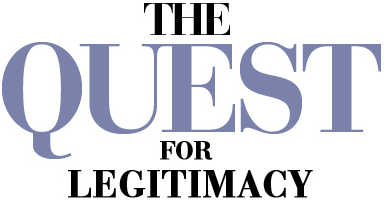Ever wonder why family conflict seems as intricate as a grandfather clock, each cog and wheel spinning in silent protest? Imagine the ticking hands of legacy and individuality clashing, the hour striking just when personal desires reach their peak against family expectations.
We’ve all felt that moment when maintaining peace feels like tiptoeing through a minefield—each step could either forge stronger bonds or detonate lingering tensions. But isn’t there something oddly comforting about knowing you’re not alone on this battlefield?
You’ll dive into ways to navigate these choppy waters with grace—whether it’s mastering communication skills at your next family gathering or setting boundaries so firm they could stand up in court.
The table is set; let’s uncover how to turn feuds into food for thought… Shall we begin?

Table Of Contents:
- Understanding Family Conflict in Prominent Families
- Effective Communication as a Tool for Conflict Resolution
- Conflict Management Strategies for Family Gatherings
- The Role of Family Therapy in Resolving Unresolved Conflicts
- FAQs about Family Conflict
- Conclusion
Understanding Family Conflict in Prominent Families
Family conflict can turn a family gathering into a battleground where every word is weighed for its potential impact. When you belong to an affluent family, these tensions often simmer beneath the surface, waiting for an opening.
In such families, each member may feel the heavy weight of legacy on their shoulders—a relentless pressure that shapes decisions and interactions. The struggle between maintaining this legacy and following personal ambitions creates inevitable tension within the unit.
The Multifaceted Nature of Legitimacy in Affluent Families
Societal expectations hang like gilded frames around the portraits of prominent families—each one telling a story steeped in history and achievement. For individuals within these circles, legitimacy is not just about wealth but also honoring long-established reputations. American Psychological Association‘s research confirms that upholding family bonds amid such pressures demands considerable emotional well-being.
This balance becomes even more challenging as individual desires clash with collective goals—sparking off conflicts among family members who are trying to carve out their own paths while respecting ancestral footprints left behind by founders’ founding dreams.
Pressure to Uphold Family Legacy Versus Personal Ambitions

Fulfilling personal ambitions without disrupting the finely woven tapestry of familial expectations is akin to walking a tightrope above generational achievements—it takes immense skill and courage.
To mitigate internal strife within such dynasties requires finesse; it means learning conflict resolution skills capable of bridging gaps between generations vying for relevance against a backdrop colored by historical significance. It’s here that effective communication emerges as key—not only does it help resolve immediate disputes but also fosters stronger connections going forward.
Positive Psychology resources online suggest, good communication could be what keeps relationships strong enough to withstand storms wrought by differing life choices or unmet expectations regarding one’s role within both family business dealings or simple interactions during holiday dinners at home—or perhaps at an assisted living facility later down life’s road.
Key Takeaway:
Family gatherings in prominent homes can be a tightrope walk—balancing personal dreams with the weight of legacy. It takes skill and finesse to navigate these pressures, where effective communication is crucial for maintaining strong bonds and resolving conflicts that arise from clashing ambitions.
Effective Communication as a Tool for Conflict Resolution
Overcoming Fear of Judgment in Family Conversations
When it comes to improving family relationships, the fear of judgment can act like an invisible wall. It stifles open communication among affluent families where there’s much at stake. To enhance honest dialogue, one must first recognize that this fear often stems from deep-seated expectations and societal pressures.
Families known for their legacy sometimes find themselves in a dance of words unspoken and truths untold because each member struggles with vulnerability. Developing communication skills is key here – not just any skills, but those tailored to navigate the nuances of familial ties woven through generations.
Improving communication skills within such dynamics requires us to dismantle barriers brick by brick—encouraging conversations grounded in empathy rather than evaluation. This approach allows members to express individual desires without overshadowing the collective narrative or compromising emotional well-being.
Enhancing Honest Dialogue Among Family Members
Truthfulness is not only about speaking accurately; it’s also about being listened to genuinely. For prominent families, fostering an environment that promotes honest dialogue means establishing trust—a belief that one will be respected despite diverging from expected paths or questioning established norms.
In these circles, enhancing open communication doesn’t mean dismissing tradition but inviting diversity of thought and experience into the conversation—the kind that enriches family bonds instead of weakening them. Techniques like holding regular family meetings become platforms for every voice to be valued equally: adult children sharing space with elder statesmen underpinning legacies past, present, and future.
This form of engagement calls upon conflict resolution skills adept at unraveling intricate threads while weaving stronger connections between members who may have varying perspectives on maintaining boundaries yet share common goals regarding relationship maintenance and positive psychology within their unique context.
Key Takeaway:
Break down the fear of judgment in family talks. Recognize it comes from deep-rooted expectations and pressures. Develop tailored communication skills to encourage empathy-filled conversations, boosting honest dialogue and trust.
To foster open communication in prominent families, embrace diverse thoughts while respecting traditions. Use regular meetings for all voices to be heard equally, weaving stronger connections despite different views on boundaries and legacies.

Reflection and Self-Discovery Before Family Events
Facing family events can be like walking into a room where every piece of furniture has a history—each corner holds stories that may trigger joy or reignite old conflicts. It’s here that reflection and self-discovery become your silent allies, letting you navigate the emotional landscape with grace. This is not just about thinking back on past gatherings; it’s an active process of understanding what sets off sparks among kin.
You’re no stranger to the intricate dance of these affluent affairs. Reflecting helps you understand why certain comments make your blood simmer or why cousin Joe’s brags feel like needles under your skin. Armed with this knowledge, you come prepared, ready to steer clear of conversational landmines and turn interactions towards more neutral ground.
The beauty in this preparation lies beyond avoiding confrontation—it opens doors to strengthen relationships by engaging in dialogue rooted in empathy rather than defensiveness. When we take time for personal growth before stepping into the fray, we don’t just survive family gatherings; we transform them into platforms for building lasting bonds.
Boundary Setting with Family Members
Beneath the chandeliers’ glow at opulent reunions lies a subtle battlefield where words are wielded with precision—or carelessness—that could sever ties or fortify them. Here is where boundaries assert their power: they are invisible lines drawn around our comfort zones that protect us from emotional trespassers during charged encounters.
Erecting boundaries doesn’t mean constructing walls between each other but setting clear expectations on what behaviors won’t be tolerated—the sneaky digs at someone’s career choice or snide remarks over dinner choices have no place when respect governs interactions within prominent families looking to maintain healthy relationships.
A simple “Let’s talk about something else” can act as a shield deflecting unwanted topics while preserving dignity all around. Clear communication paves the way for resolution strategies so that moments spent together foster connection instead of creating rifts within the fabric of family life.
The American Psychological Association suggests such proactive approaches reduce stress levels significantly—allowing everyone present to breathe easier amidst potential strife.
Key Takeaway:
Reflection before family events lets you dodge conflict and foster empathy, turning tricky gatherings into chances to strengthen bonds.
Setting boundaries with kin is key; it keeps the peace without building walls, ensuring everyone can enjoy posh reunions stress-free.
The Role of Family Therapy in Resolving Unresolved Conflicts
When family ties tangle into knots, professional guidance through family therapy can be a beacon of hope. It’s not just about sitting on a couch and talking; it’s an active journey toward healing unresolved issues that often fuel ongoing conflicts within families.
Addressing the Fear of Disappointing the Family Legacy
The weight of expectation can press heavily on those born into prominent names. Many fear disappointing their loved ones by straying from expected paths set before them—paths paved with tradition and success. Yet, it is this very fear that therapists are skilled at navigating, helping individuals peel back layers to discover what truly resonates with their sense of self.
Fear isn’t rational; it doesn’t follow a straight line or listen to reason—and neither does the pressure to conform. Herein lies therapy’s role: providing a safe space where one can voice these fears without judgment and start building resilience against them. Therapists foster environments conducive for clients to explore personal ambitions while still honoring their family legacy—a delicate balance between individuality and heritage.
Professional Guidance for Complex Family Dynamics
Intricate family dynamics demand nuanced approaches which professional guidance expertly offers. Families often function as ecosystems, where changes in one part affect the whole unit profoundly—making understanding each member’s perspective critical in resolving conflict effectively.
A therapist brings fresh eyes to entrenched patterns obstructive to peace within familial relationships—an outsider who sees beyond subjective views tainted by history or emotionality associated with unresolved issues lingering among relatives. With experience dealing specifically with complexities found in affluent families’ interactions, they help unlock new ways for members not only to resolve conflict but also to maintain boundaries essential for emotional well-being moving forward.
Key Takeaway:
Family therapy shines a light on tangled ties, guiding prominent families through fear and expectation to find balance between legacy and individuality.
Therapists offer fresh perspectives in complex dynamics, helping members peel back layers of conflict to build resilience and honor both personal ambitions and family heritage.
FAQs about Family Conflict
What is a family conflict?
A clash of interests, values, actions, or directions between family members marks a family conflict.
What to do when family members don’t get along?
Encourage open dialogue, acknowledge different perspectives, and seek common ground to mend fences.
How do you deal with an inconsiderate family member?
Maintain your cool, set firm boundaries, and communicate your feelings clearly without hostility.
What to do when your family turns against you?
Rally support from friends or professionals, stay true to yourself and try to understand their stance while keeping healthy limits.
Conclusion
Family conflict can seem daunting, but remember, every conversation is a step toward resolution. Think about it: you now understand the dance between legacy and personal ambition in prominent families.
Lean into those tough talks without fear of judgment; set boundaries that honor your well-being. You’ve learned to use reflection as prep work before family events—like sharpening swords for battle.
And if tensions run too deep? Therapy might be your ally in mending frayed ties. Keep these tools close; they’re more than just advice—they’re the blueprint for harmony at home.
Your takeaways are clear: communicate openly, navigate gatherings with strategy, and seek help when needed. Fixing family bonds isn’t easy, but with the right moves, you’ll weave threads of understanding through each interaction—and that’s what counts.
Embark on your own Quest for Legitimacy. Explore how navigating through prominence can lead to self-discovery and authenticity. You’ll find tools, resources, and support tailored specifically for individuals like you who strive to carve their path while honoring their heritage. This quest will change your life… guaranteed! Order your copy of The Quest for Legitimacy.

